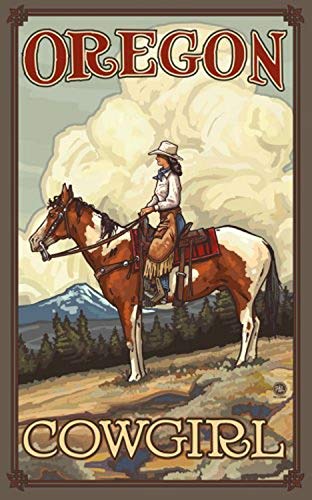Age had dimmed her vision, but Grayce Brintnall could still see herds of wild horses grazing on the hillsides. She was spending her days indoors, but her lungs still swelled with the fresh air of the open range. And while she hadn't been in a saddle for years, she could still feel the ride of a strong horse at full gallop.
A few days before her 100th birthday, I went to ask Grayce some fool questions. That's what happens to you when you get to be a centenarian.
"You aren't going to ask me those questions, are you?" (How did you live to be 100? What's your prescription for a long life? Did you think you'd live to be this old?)
"I was taught not to ask questions of people," said Grayce. "That was the law when I was a kid. You didn't ask people where they came from or why they came."
I asked my questions anyway, as people of the newspaper trade are wont to do.
I learned that Grayce's father, captain of wagon trains, pioneered the Oregon country in the 1850s and that she was born in the small town of Prineville ("thank God!") in 1889. Her father died when she was just two years old and her grandfather and uncle helped her mother raise her through childhood.
Grayce grew up on horses. By the age of seven she was riding alone. At 18, she drove stage teams for her uncle up to mines in the Ochoco Mountains. She'd ride up from Prineville, stay overnight at the stage station, and return the next day. One day up, one day back, day after day. It was great work.
"My mother wanted me to be a lady. That was always a bad word with me. I just wanted to be me," Grayce explained.
For a time, she lived with her mother in Portland, working at a dimestore. But soon as she could arrange it, Grayce was back in Prineville. There were two problems with city life. First, there were no horses. ("Horses were my first love.") Second, she didn't like the people.
"I don't like people," she said. "I like folks."
"What's the difference?" I asked.
"You figure it out," she said, looking at me askance. "I don't know which you are, but I suspect you're people. People is for themselves, alone. Folks care for one another; they take care of their neighbors."
Truth is, there are few Grayces left in this country. It's hard to find folks rooted in a landscape, sensitive to its patterns and loyal to its history. Most small-town folks and their principles of neighborliness, family order and land stewardship have been supplanted.
"People move here because they want to get away from someplace. But once they get here they commence to making it just like where they came from," Grayce told me.
Most of us don't know how to do otherwise. Community isn't taught in our schools, nor is it recognized by our media. Our economy values self-interest over cooperation, consumption over production. And far too often we move to the country as people determined to "consume" its resources, not as folks learning to care for them.
